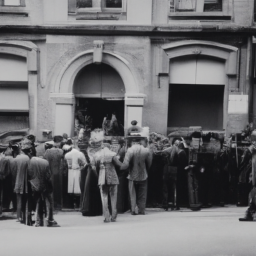The assassination of a president is one of the most tragic events in the history of any country. Despite having one of the most elite protective services in the world, there have been four presidents assassinated while in office. These tragedies have left an indelible mark on the history of the United States, and have shaped the way that we think about presidential security and national security in general.
The first president to be assassinated while in office was Abraham Lincoln, who was shot by John Wilkes Booth on April 14, 1865. Booth, a Confederate sympathizer, had been plotting to kill the president for some time, and he finally carried out his plan at Ford's Theatre in Washington, D.C. Lincoln died the following day, and the nation was plunged into mourning.
James Garfield was the second president to be assassinated, when he was shot by Charles J. Guiteau on July 2, 1881. Guiteau was a disgruntled office-seeker who believed that Garfield had betrayed his political supporters. Despite the efforts of doctors to save him, Garfield died of his wounds 11 weeks later.
William McKinley was the third president to be assassinated, when he was shot by Leon Czolgosz on September 6, 1901. Czolgosz was an anarchist who believed that killing the president would spark a revolution. McKinley died of his wounds eight days later, and the nation was once again plunged into mourning.
The fourth and most recent president to be assassinated was John F. Kennedy, who was shot by Lee Harvey Oswald on November 22, 1963. Kennedy's death traumatized a nation and led a united Congress to make a key constitutional change, resulting in the 25th Amendment to the Constitution, which established the procedures for presidential succession.
In addition to these four presidents, there have been several attempts on the lives of other presidents, including Theodore Roosevelt, Franklin D. Roosevelt, Harry S. Truman, Gerald Ford, and Ronald Reagan. Each of these incidents underscored the need for better presidential security and stricter gun laws.
The issue of gun laws has been a contentious one in the United States for many years. The assassinations of these presidents have highlighted the need for stricter gun control measures, but there has been much resistance to such measures from gun rights groups and other opponents.
The issue of national security has also been brought to the forefront by these assassinations. The ability of a single individual to cause so much harm to the nation's leader underscores the need for constant vigilance and protection of our nation's leaders.
The investigations into the assassinations of these presidents have been complex and controversial. In some cases, such as the assassination of John F. Kennedy, there have been allegations of conspiracy and government cover-ups. The recent assassination of Haitian President Jovenel Moïse has similarly been plagued by slow progress and allegations of government corruption.
Despite the controversies and complexities surrounding these assassinations, they have left an indelible mark on the history of the United States. They have underscored the need for better presidential security and stricter gun laws, and they have highlighted the importance of national security and constant vigilance.
